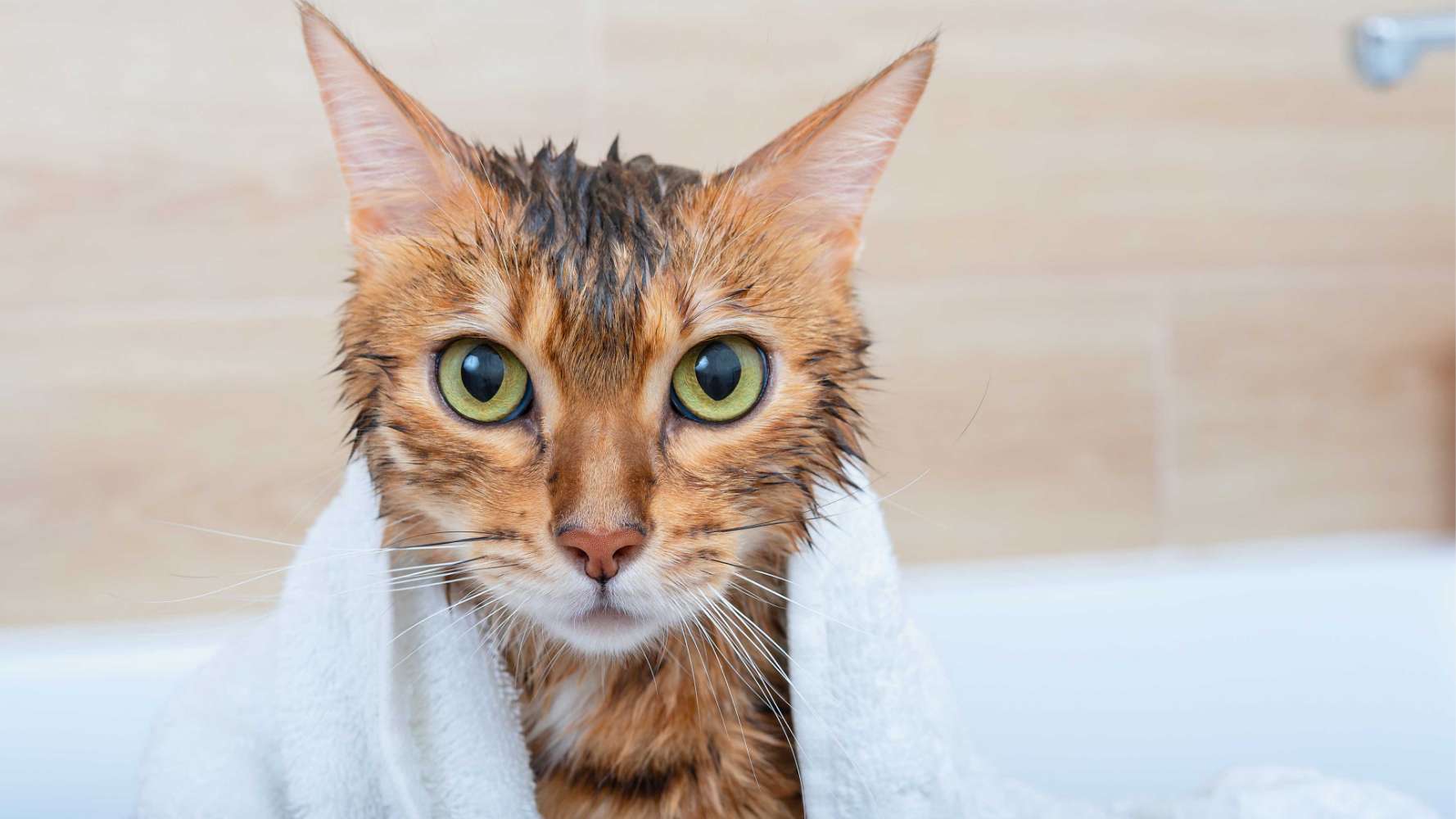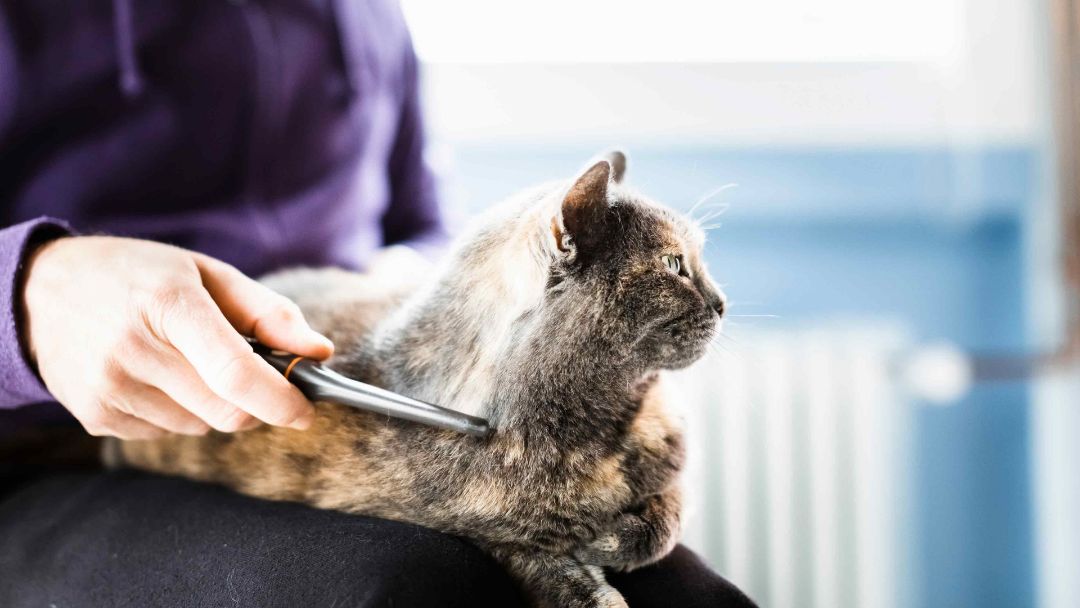Your dog's itchy skin: Causes and treatment options
If you've been spending more time at home with your pets, you may have noticed something: They scratch at themselves. Maybe more than you thought they did. If you're wondering if that's normal, we've got a few ways to figure it out.
First off, if they're constantly chewing, biting, or clawing at themselves – especially if it's happening so regularly that it's keeping you awake at night – or if you spot any noticeably irritated skin, skin redness, scabs, sores, or notable hair loss – definitely see your Banfield Pet Hospital veterinary team. Also make an appointment if your pet is “itching” their bottom on the floor or rugs, which could indicate parasites or a gland problem. And if you or someone you live with starts having a skin irritation, too, let's connect without delay to ensure nothing is transmissible.
But if your pet is generally healthy, with normal skin, then be on the watch for these common problems.
Fleas
If you've ever had one, you know – flea bites itch. A flea preventive for your pet – for example, Simparica® for dogs – along with flea-proofing your house and yard are the best ways to tackle these tiny little terrors – so definitely add monthly parasite preventive to your Optimum Wellness Plan®.
Skin allergies
Aside from all the other downsides to fleas, some pets have an allergic reaction to flea saliva. Even a single bite can kick off uncontrollable itching and excessive scratching – so if you suspect that's the case, definitely make an appointment with your vet. Pet food allergies are much more rare, but still a possibility to explore with your veterinary team. Then there are seasonal environmental allergies, like sensitivities to pollen and dust mites. While these allergies commonly make people sneeze, they actually cause pets to itch, instead.
Your Banfield Pet Hospital veterinary team can help figure out the issue and help you manage it over your pet’s lifetime. If medication is required, there are some new, innovative approaches. APOQUEL® from Zoetis Petcare can provide relief for itchiness related to flea allergy, food allergy, contact allergy, and atopic dermatitis. And CYTOPOINT®, also from Zoetis, is a safe, effective, long-lasting treatment that works with a dog’s immune system to help control itch due to allergic or atopic dermatitis. It is an injection that is given by your veterinarian or veterinary technician that targets itch at its source.
Dry skin
If you’re seeing dandruff after your pet scratches, dry skin could be the culprit. The best way to address this is with a nutritionally complete diet containing a balanced fatty acids ratio, which can help improve the skin – ask your veterinary team which diets they recommend. You can also ask about supplementing your pet’s diet with fatty acid supplements made specifically for pets. As there are many options of supplements available, and labeling can be tricky, ask your veterinary team which supplement and dosage is recommended for your pet.
Grooming
Does your head get itchy if you don’t wash your hair? The same may be true for your pet, especially if their coat is matted, oily, or uneven.
Routine brushing, coat trims, and regular baths with mild grooming products and even skin and coat conditioners can help (so long as you don't over-bathe and only use products that are labeled for dogs and cats). Don't worry if you see more dandruff after bathing – it may be totally normal, and should just be brushed away. If it returns, talk to your veterinary team.
If you've ruled out the above, then maybe it helps to remember that, just like people, cats and dogs sometimes just plain get a persistent itch. So if your pet is scratching around their collar, maybe all they need is a good rub right where they can't reach. We're sure they'll appreciate if you lend a hand.
 Mites and mange
Mites and mange Podcast - Not Just Fluff
Podcast - Not Just Fluff












